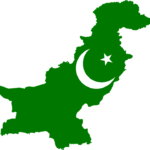Afghanistan is a country with a long history of struggle, particularly when it comes to women’s rights and freedoms. Unfortunately, recent events have taken a turn for the worse. The Taliban, a conservative militant group now holding significant power in the country, has banned women’s beauty salons. This oppressive measure adds to the existing limitations on Afghan women’s rights. It has severe economic implications for female entrepreneurs and their families.

The Ban and Its Justification:
The Taliban claims that the banned services offered by beauty salons, including eyebrow shaping, hair enhancements, and makeup application, are forbidden by Islam. They argue that these practices interfere with the necessary ablutions before prayer, a crucial aspect of the Islamic faith. While religious sensitivities are important to many, it is vital to question whether such bans are proportionate and fair, especially considering the broader consequences they impose on women’s rights and livelihoods.
Impact on Women’s Rights:
This ban is yet another blow to Afghan women’s already limited rights and freedoms. Over the years, progress has been made toward greater gender equality, with women gaining access to education, public spaces, and employment opportunities. However, the Taliban’s ban on beauty salons represents a regression in these hard-fought achievements. Afghan women now face a bleak reality where their personal choices and aspirations are stifled.
Women’s Economic Empowerment:
Beyond the infringement on women’s rights, the ban on beauty salons also has severe economic implications. Many women in Afghanistan have established their own beauty salons, providing a source of income for themselves and their families. The sudden prohibition of these businesses puts their economic well-being at risk, leaving them vulnerable to poverty and dependence. The ban affects the livelihoods of female entrepreneurs and the financial stability of their families and communities.
The Importance of Beauty Salons:
Beauty salons serve as more than just places for aesthetic enhancements; they can be spaces of empowerment and self-expression for women. These establishments provide employment opportunities for women, fostering economic independence and the ability to contribute to society. Additionally, beauty salons often act as safe havens where women can gather, socialize, and seek support from one another. By banning beauty salons, the Taliban effectively isolates Afghan women, undermines their agency, and perpetuates gender inequality.
International Response and Solidarity:
The international community must not remain silent in the face of such regressive measures. Governments, organizations, and individuals worldwide must condemn the Taliban’s ban on women’s beauty salons and support Afghan women in their struggle for equal rights. It is crucial to exert pressure on the Taliban to respect women’s rights and create an environment conducive to their empowerment.
Supporting Afghan Women:
Efforts should be made to provide financial assistance, vocational training, and alternative employment opportunities for Afghan women affected by the ban. This support will help them navigate challenging circumstances and rebuild their lives. Furthermore, advocacy groups and human rights organizations can play a vital role in raising awareness about the plight of Afghan women, mobilizing public opinion, and pressuring governments to take action.
Looking Ahead:
The Taliban’s ban on women’s beauty salons deepens the existing restrictions on Afghan women’s rights and undermines their economic empowerment. The international community must stand in solidarity with Afghan women and work toward meaningful change. Women’s inclusion and empowerment are crucial for Afghanistan’s long-term stability, development, and prosperity. By supporting women’s rights, we can help create a future where Afghan women can freely pursue their dreams and contribute to the progress of their nation.
Conclusion:
The Taliban’s ban on women’s beauty salons in Afghanistan is a distressing development that further erodes women’s rights and hampers their economic empowerment. This oppressive measure adds to the existing limitations on Afghan women’s education, public spaces, and employment opportunities. The international community must take a stand, support Afghan women, and work towards a future where their rights and freedoms are respected. Doing so can contribute to a more equitable and inclusive world where women can thrive and realize their full potential.
Some Useful links
Freedom from Religion
Recovering from Religion
Tag Cloud
Abuse evolution Greg Locke Hate Preacher Islam LGBTQ+ Life Living Waters Mars Mental Health news Pat Robertson Ray Comfort Religion Science Supreme Court Taliban
Latest Posts
- Complex Life May Have Evolved More Than Once — And Why That Should Thrill Anyone Who Values Reality Over Revelation
- Teenager Receives Death Penalty in Pakistan for Blasphemy
- A Tragic Tale of Intolerance: The Killing of Shazia Imran
- Bolivian Prosecutors Launch Probe into Catholic Church Abuse Scandal
- The Dark Side of Dogma: Executions for Blasphemy Surge in Iran





